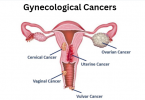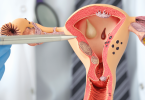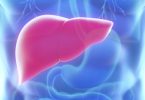I recently came across the daughter of my patient suffering from Colon cancer stage 4. Of course, having seen the dreaded disease at home she asked a very pertinent question on how can she detect this early in her life. She went on to ask if she can get a PET-CT to get herself screened. The answer is straight NO.
So, if I have to ask you, when would you like to get checked for cancer? Before symptoms appear or after? Most women think unless I have no problem why should I get myself checked. Well, that’s the right time to get yourself checked before symptoms appear. That’s the time when you detect early and hence more chance of getting cured.
You just can’t wait for a lump in the breast, bleeding discharge in menopausal women or blood in the stool to get it checked and treated coz then it’s probably pretty late.
Please read below and find out what tests are required and how frequently one should get it done.
What screenings are required and when should I start getting them?
For women with average risk, the general suggestion is:
- At age 21: A smear or a Pap test to check for Cervical Cancer. If the results are favorable and normal, one should get it checked every 3 years. There is no such requirement of getting it checked every year for a woman with an average risk.
- At age 30: If you get a Pap test and HPV test at the same time, and the results for both of them are favorable, then you can shift from a 3-year testing schedule to a 5-year testing schedule.
- At age 40: An annual breast exam and mammogram to find about breast cancer.
- At age 50: A colonoscopy every decade, and a FOB tet every year to find for colorectal cancer.
Do I really need all the screenings? Can some be delayed or missed?
Yes, you need all of them. As all of them play an important role and have to be checked at the specified time. So none of the tests should be missed. Probabilities of women dying with cancer when screened regularly and at all the ages specified are very less.
Who? Why and when ? should I go and see an Oncologist?
I generally suggest the public in general to go and meet oncologists when you encounter at least one of the following
- History of cancer in 1st or 2nd-degree relatives
- Any symptom even as simple as bloating or increase in the frequency of urination which doesn’t get resolved over a period of 12 weeks
- Any abnormal lump felt
- Any abnormal growing mole or swelling
- Any abnormal discharge or bleeding from mouth, anus or genitourinary tract
- Change in bowel habits
- Prolonged indigestion or heartburn
- Unresolved prolonged cough
- Difficulty in eating And early fullness after eating
- And at the above-mentioned age for screening and early detection of cancer.







